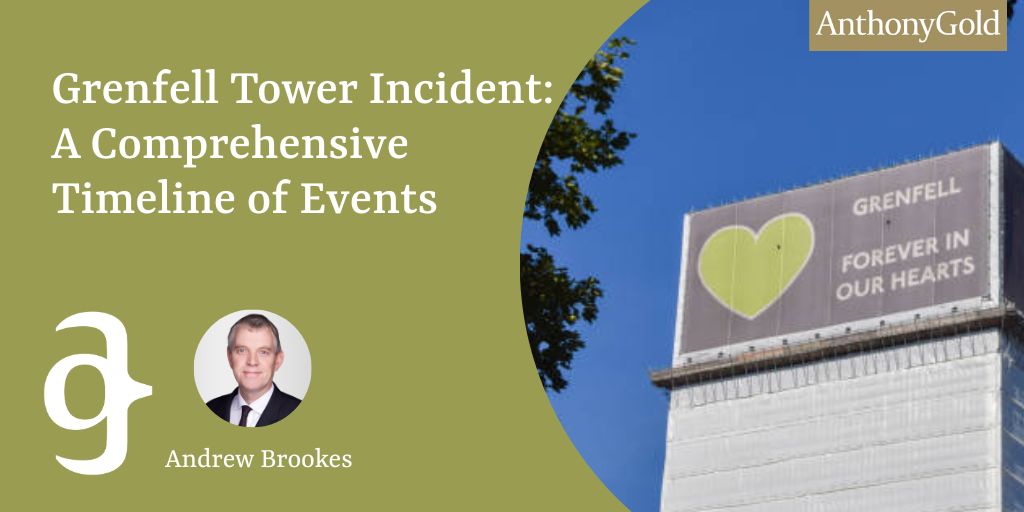Grenfell Tower Incident: A Comprehensive Timeline of Events

The Grenfell Tower fire was one of the most devastating tragedies in recent UK history, leading to the loss of 72 lives and highlighting significant failures in fire safety regulations and housing management. Below is a detailed timeline of the key events surrounding the Grenfell Tower incident, tracing its origins, the night of the fire, and the aftermath that has reshaped housing policies and regulations in the UK.
1974: Construction of Grenfell Tower
- Completed: Grenfell Tower, a 24-storey residential block, was constructed in the Lancaster West Estate, North Kensington, London. It originally comprised 120 flats and was designed to provide housing for lower-income families.
2012: Plans for Refurbishment
- Proposal: Kensington and Chelsea Tenant Management Organisation (KCTMO) proposed a major refurbishment of Grenfell Tower to improve energy efficiency and aesthetic appeal.
2014-2016: Refurbishment Works
- Work Commencement: Refurbishment of Grenfell Tower began, with significant changes including the installation of new windows and the addition of an exterior cladding system intended to improve thermal insulation.
- Concerns Raised: Residents expressed concerns about the safety of the refurbishment, particularly the fire safety implications of the new cladding.
2016: Refurbishment Completion
- Completion Date: The refurbishment was completed in 2016, but residents’ concerns persisted, particularly about the lack of a sprinkler system and the single stairwell design, which they feared could hinder evacuation during a fire.
14 June 2017: The Night of the Fire
- 12:54 AM: A fire broke out in a fourth-floor flat due to a malfunctioning fridge-freezer. The fire quickly spread to the exterior of the building, fuelled by the newly installed cladding and insulation.
- 1:00 AM: London Fire Brigade (LFB) received the first emergency call, and firefighters arrived within minutes. Despite their swift response, the fire had already reached the upper floors.
- 1:29 AM: Residents were initially advised to “stay put” in their flats, a standard fire safety protocol for high-rise buildings. However, as the fire spread uncontrollably, this advice was later revised to encourage evacuation.
- Early Morning Hours: The fire engulfed almost the entire building. Rescue operations continued throughout the night, with firefighters rescuing many residents, but tragically, 72 lives were lost.
June 2017: Immediate Aftermath
- 15 June: Prime Minister Theresa May ordered a public inquiry into the fire, focusing on the causes of the fire and the response by emergency services.
- 17 June: The “Grenfell Fire Response Team” was established to coordinate the relief efforts for survivors and the bereaved families.
- Late June: Cladding from similar buildings across the UK began being tested, revealing that many other high-rise buildings were at risk due to similar materials.
September 2017: Public Inquiry Begins
- Launch: The public inquiry, led by Sir Martin Moore-Bick, began its investigation into the causes of the fire, the adequacy of building regulations, and the actions of those responsible for managing Grenfell Tower.
May 2018: Phase 1 Inquiry Report
- Report Findings: The first phase of the inquiry found that the cladding on Grenfell Tower did not comply with building regulations and was the primary cause of the rapid spread of the fire.
2019: Legal and Regulatory Changes
- Implementation: In response to the Grenfell disaster, the UK government began implementing new fire safety regulations, including banning combustible materials in the cladding of high-rise buildings and reviewing building safety protocols.
2021: Phase 2 Inquiry
- Focus: The second phase of the inquiry examined the broader issues, including the role of government policies, the construction industry, and the management of social housing. It revealed systemic failures at multiple levels, from local authorities to national regulations.
2023: Continuing Impact
- Ongoing Reforms: The Grenfell Tower tragedy continues to influence UK housing policies, with ongoing efforts to improve fire safety in residential buildings. Survivors and campaigners continue to seek justice and push for further reforms to prevent such a tragedy from occurring again.
2024: Release of Final Inquiry Report
- 4 September 2024: The final report from the Grenfell Tower Inquiry is scheduled for release on this date. This report is expected to provide a comprehensive overview of the findings from both phases of the inquiry, including detailed analysis of the causes of the fire, the adequacy of fire safety regulations, and the responsibilities of various parties involved.
- Anticipated Impact: The report is likely to lead to further changes in UK housing law and building regulations. It will also address accountability issues and potentially recommend criminal prosecutions for those found to be at fault. Survivors and the families of the victims await this report with the hope that it will bring about justice and ensure that such a tragedy never happens again.
The report was released on the 4th September and is a critical moment in the ongoing pursuit of justice for the Grenfell Tower victims and will likely shape the future of housing safety regulations in the UK.
Conclusion
The Grenfell Tower fire was a catastrophic event that exposed severe shortcomings in building safety regulations and the management of social housing. The tragedy has led to widespread changes in fire safety policies, a re-examination of building regulations, and an ongoing public inquiry to ensure that the lessons learned lead to meaningful and lasting change.
For more information on housing and property disputes, or if you require legal advice related to housing safety or landlord-tenant issues, please contact our expert Housing team.
* Disclaimer: The information on the Anthony Gold website is for general information only and reflects the position at the date of publication. It does not constitute legal advice and should not be treated as such. It is provided without any representations or warranties, express or implied.*
No comments